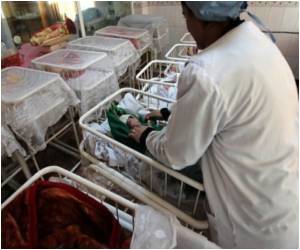The new finding helps scientists develop new and cost effective methods to boost innate lung immunity in preterm babies.

‘A complex biological processes that in premature lungs stimulates production of Type 3 innate lymphoid cells in air sacs called alveolar.’





A Biological Ballet The current study reveals a complex interplay between beneficial bacteria in the intestines, the maturation of lung tissues and the growth of immune cells in what the researchers call the gut-lung axis. It happens in neonates during an early and critical development window of the newborn lung, according to their report.
Commensal bacteria from the gut stimulate the production of Type 3 innate lymphoid cells. This occurs in early alveolar cells called fibroblasts when biological cues from the gut stimulate production of a hormone called insulin-like growth factor 1 (IGF1). IGF1 orchestrates expansion and maturation of early pulmonary innate lymphoid cells, the study shows.
When researchers deleted pulmonary IGF1 in the lungs of baby mice, it interrupted the biogenic development of Type 3 innate lymphoid cells and made the mice susceptible to lung infections and pneumonia. They confirmed this by analyzing the underdeveloped lungs of premature mouse pups and donated lung tissues from the families of premature human infants.
The findings have potential clinical implications because premature infants are depleted of helpful gut bacteria by the need for oxygen ventilation to help them breath. This is exacerbated by what Deshmukh called a "double whammy" when the babies have to be administered antibiotics to fight their vulnerability to infection.
Advertisement
Never Ending Challenge
Advertisement
Bacterial pneumonia kills more than one million infants around the world each year, study authors note.
Prior to the new study in Science Immunity the researchers published previous papers in Nature Medicine and Science Translational Medicine establishing the critical of role of the Gut-Lung Axis molecular interplay and the potentially harmful impact of aggressive antibiotic regimens in premature infants.
Source-Eurekalert











